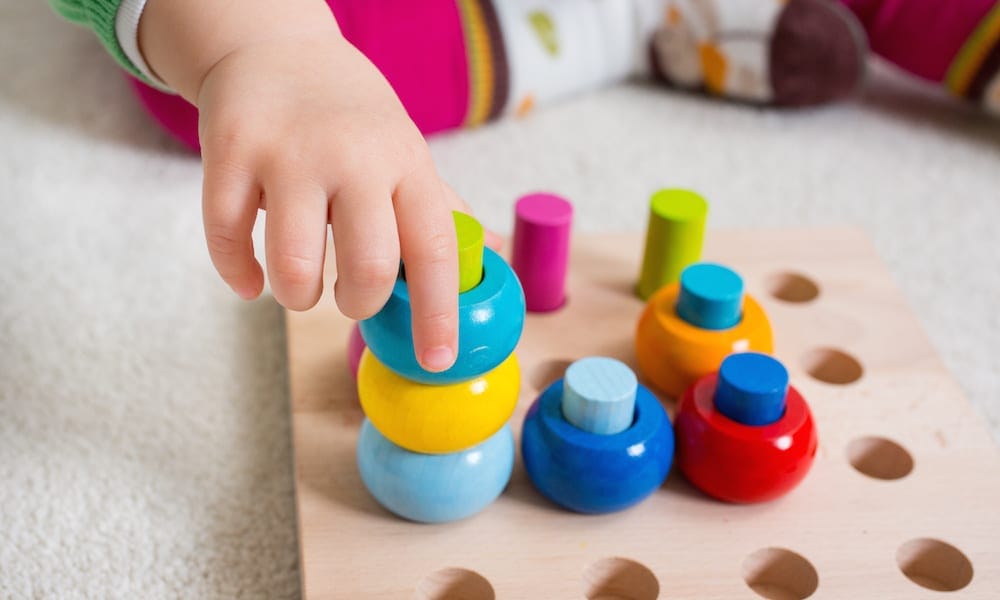The Benefits of Play Based Curriculum for Toddlers
We all want the best for our kids. From what they eat, to what they learn; we’re always on the lookout for what will work best for us and our children.
With the introduction of the Australian National Curriculum, there’s been a lot of expectations and work handballed to our children, at increasingly younger ages. I remember my daughter’s teacher in prep warning us that the National curriculum means they are expecting more of our children. And there’s certainly nothing wrong with raising the bar for our kids. Setting challenges and helping them to strive for greater heights. But unfortunately such striving seems to have come at a cost. The cost of play.
For some reason, our government has seemingly poo-pooed play based curriculum for little ones, in favour of more traditional academic endeavours. What they failed to recognise though, is just how important play based curriculum is for our children, and the benefits it provides in teaching the ‘whole child’.
Playing for young children is so much more than just spreading sand from here to the ends of the earth and smashing trucks into each other. Play is the way our children come to grasp the world around them, it helps them develop many important life-long skills.
So what can a play-based curriculum provide our children?
It has a positive impact on brain development
Play creates a brain that has increased ‘flexibility and improved potential for learning later in life’ (Lester & Russell, 2008). Children who engage in quality play experiences are more likely to have well-developed memory skills, language development, and are able to regulate their behaviour, leading to enhanced school adjustment and academic learning (Bodrova & Leong, 2005).
It enhances social emotional development
Play based learning nurtures social and emotional development in such a complex, yet uncomplicated way. From learning rules and turn taking, to communicating with others and regulating emotions, a play based curriculum can offer many benefits (Berk, Mann, & Ogan, 2006). And we know how important social and emotional wellbeing is for later academic success.
It enhances academic learning
While we might worry that children are ‘just playing’ and not learning, that couldn’t be further from the truth! Play is a natural way that children engage with their environment, and learn key literacy and numeracy skills. It can set the stage for greater success in formal academic curriculum as they grow older (Ginsburg, 2006; Saraco & Spodeck, 2006). We seem to think that playing and formal learning are often two different things. But they’re not. They co-occur.
It teaches problem solving and lateral thinking
Play is vital for children to understand and develop key thinking processes. From understanding how to re-build a Lego house, to completing a puzzle, to playing “Mums and Dads”, play enables children in a real time, applied manner
It builds confidence and motivation
Children are naturally drawn to play, and when they’re motivated to engage in something, there’s a greater enhancement of the learning process. By being able to tackle activities and achieve them, children’s confidence grows. This then translates to formal academic schooling.
It’s fun!
Most importantly- play is fun. It’s an enjoyable experience that children derive pleasure from, as well as all the other benefits described previously. There’s plenty of time for formal learning, but for now, let them have fun and explore the world around them. That sense of enjoyment is what we want them to take into the classroom, as it only enhances academic learning. If we can set them up with the foundations for lifelong enjoyment of learning, then we’re off to a good start.
Daycare centres and pre-prep facilities carefully formulate great play based programs to enhance the learning and development of our youngest treasures. It is important for us as adults to re-think our own notions of play, and pull back a bit from the hard and fast ABC’s so early on. They will come. In the meantime, engaging in play is just what our children need.
For further reading, the amazing Maggie Dent has a wealth of information on early childhood learning and play based curriculum. Have a chat to your local daycare centre or C&K to discuss the types of play based curriculum on offer. And engage in play at home, it’s a wealth of learning for both your child and you!
References:
Berk, L.E., Mann, T.D., & Ogan, A.T. (2006). Make-believe play: Wellspring for development of self-regulation. In Singer, D.G., Golinkoff, R.M., & Hirsh-Pasek, K.A. (Eds.), Play = Learning:How play motivates and enhances cognitive and social-emotional growth. New York, NY: Oxford University Press (pp. 74-100).
Bodrova, E. & Leong, D. J. (2005). Uniquely preschool: What research tells us about the ways young children learn. Educational Leadership, 63(1), 44–47. Department of Education, Employment and Workplace Relations (DEEWR). (2009). Belonging, being & becoming: The Early Years Learning Framework for Australia. Canberra: DEEWR.
Ginsburg, H.P. (2006). Mathematical play and playful mathematics: A guide for early education. In: Singer, D.G., Golinkoff, R.M., & Hirsh-Pasek, K. (Eds.), Play = Learning: How play motivates and enhances children’s cognitive and social-emotional growth. New York, NY: Oxford University Press (pp 145- 165).
Lester, S. & Russell, S. (2008). Play for a change. Play policy and practice: A review of contemporary perspectives. Play England. Retrieved 21.6.2010 from www.worldleisure. org/pdfs/Copy%20of%20book_rev_play_for_change.pdf.
Saracho O.N., & Spodek, B. (2006). Young children’s literacy-related play. Early Child Development and Care;176(7):707-721.
This content was created for Families Magazine – Gold Coast October/November 2016 | Toddlers & Daycare Issue By Dr. Sasha Lynn BPsych(Hons), DClinPsych, MAPS, MCCP

